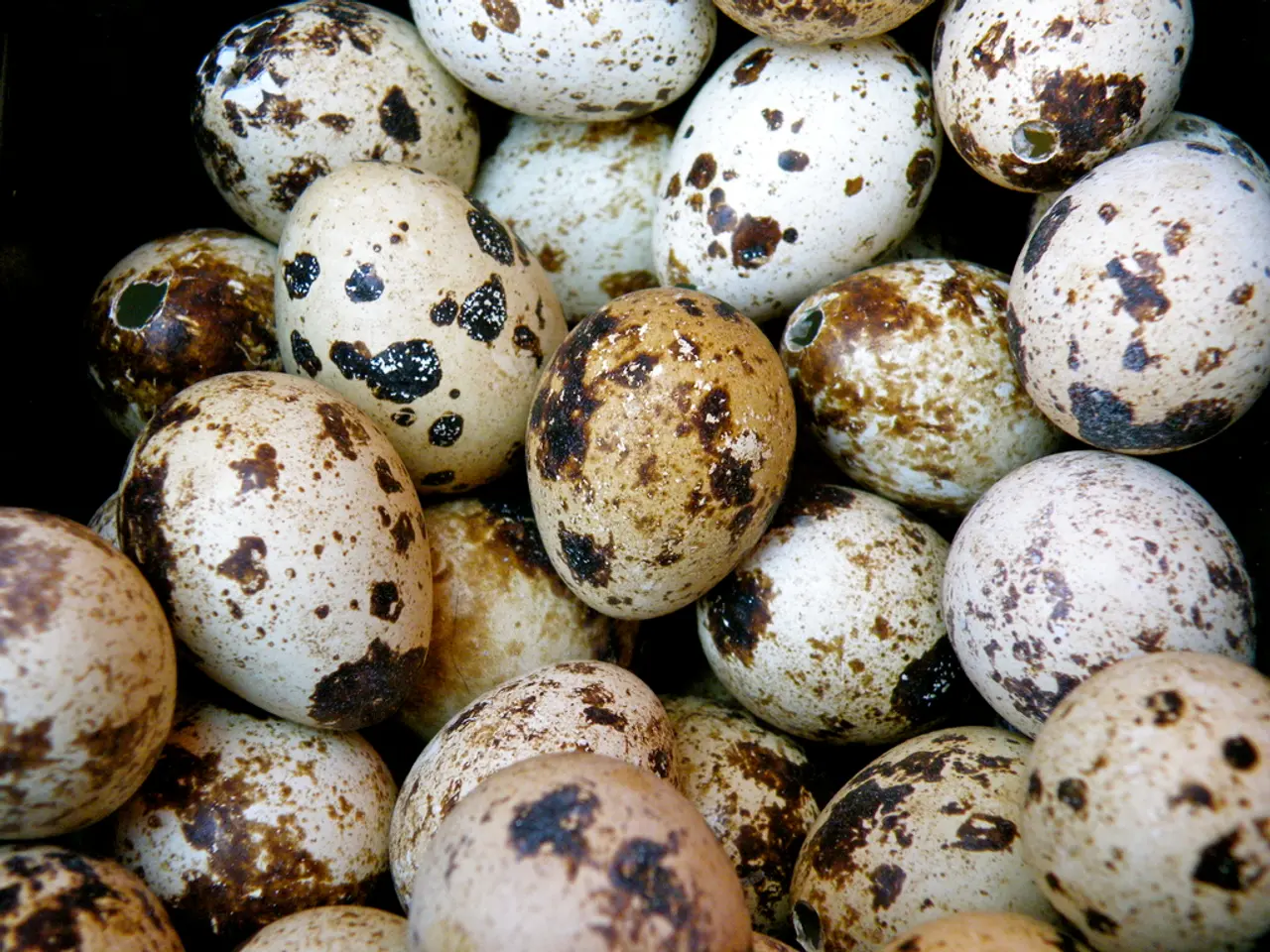Number of eggs a woman carries at birth, during her 30s, and at menopause
Women's Fertility and Egg Preservation
As women age, their fertility gradually decreases due to the decline in both egg quantity and quality. This decline becomes significant after the age of 30, accelerating past age 35.
Egg Quantity
At birth, a female fetus typically has around 6-7 million eggs. By the time they reach 20 weeks of gestation, this number decreases to 1-2 million. At puberty, the number is further reduced to approximately 300,000-500,000 eggs. By age 37, the number drops to about 25,000, and by menopause (around age 50), only a few thousand eggs remain [1][4].
Egg Quality
Egg quality, or the ability of eggs to be fertilized successfully and develop into healthy embryos, also declines with age. Older eggs more frequently have genetic errors, increasing risks like Down’s syndrome and pregnancy loss [1][5].
Fertility Impact
The combined effects of fewer eggs and diminished quality cause fertility to decrease sharply from age 35 and especially beyond 37–40 years. Ovulation may also become irregular with age [1][3]. By age 40, only a few thousand eggs remain, many of lower quality, which reduces monthly pregnancy chances substantially [3][4].
Preserving Fertility
For individuals who wish to preserve their fertility, egg freezing or fertility preservation is an option. In egg freezing, a doctor extracts the eggs while the person is younger and stores them in a laboratory at sub-zero temperatures until the person is ready to conceive [2].
Age and Fertility
A female is most fertile in their mid-20s, with a 25-30% chance of becoming pregnant each month. After age 35, this chance drops significantly, with a 20% chance of conceiving per cycle at 37, and only a 5% chance by age 40 [3].
Health Considerations
Individuals with other health issues or circumstances, such as irregular periods or those who have received chemotherapy, should consider discussing their fertility options sooner. People with conditions such as endometriosis, ovulation disorders, obesity, immune disorders, cancer treatments, inadequate nutrition, stress, or oxidative stress may have reduced egg quality [6].
Assisted Reproductive Technologies
For those experiencing infertility or when traditional options have failed, assisted reproductive technologies such as IVF and superovulation with timed intrauterine insemination (IUI) can be used [7].
Egg Donation
For older individuals or those with premature ovarian failure (POF) who want to conceive, egg donation is an option. It involves using eggs donated by another female, typically someone in their 20s or early 30s [7].
For transgender individuals transitioning to male, egg freezing or embryo freezing before hormone therapy or gender-affirmation surgery is also an option [2].
References:
[1] Mayo Clinic. (2021, April 23). Female infertility. Retrieved from https://www.mayoclinic.org/diseases-conditions/female-infertility/symptoms-causes/syc-20355373
[2] American Society for Reproductive Medicine. (2021). Egg freezing. Retrieved from https://www.asrm.org/patients/infertility-treatment-and-pregnancy/treatments-and-procedures/assisted-reproductive-technologies--art--/treatments/egg-freezing/
[3] American College of Obstetricians and Gynecologists. (2019). ACOG Committee Opinion No. 763: Fertility preservation for women with cancer. Retrieved from https://www.acog.org/clinical/clinical-guidance/committee-opinion/articles/2019/08/fertility-preservation-for-women-with-cancer
[4] Human Fertilisation and Embryology Authority. (2019). Ovarian reserve. Retrieved from https://www.hfea.gov.uk/treatments/ivf-and-injections/ovarian-reserve/
[5] American Society for Reproductive Medicine. (2021). Age and fertility. Retrieved from https://www.asrm.org/patients/infertility-treatment-and-pregnancy/treatments-and-procedures/assisted-reproductive-technologies--art--/treatments/age-and-fertility/
[6] American Society for Reproductive Medicine. (2021). Conditions related to infertility. Retrieved from https://www.asrm.org/patients/infertility-treatment-and-pregnancy/treatments-and-procedures/assisted-reproductive-technologies--art--/conditions-related-to-infertility/
[7] American Society for Reproductive Medicine. (2021). Infertility evaluation and treatment. Retrieved from https://www.asrm.org/patients/infertility-treatment-and-pregnancy/treatments-and-procedures/assisted-reproductive-technologies--art--/treatments/infertility-evaluation-and-treatment/
- Women's health issues such as depression, health conditions like asthma, or other factors like bipolar disorder may impact a woman's fertility.
- Science continues to advance in predictive studies that link women's health and wellness, including the impact of mental health disorders on egg quality and quantity.
- Given that egg quantity and quality decline with age, women's health during menopause significantly impacts their ability to conceive.
- As researchers explore the relationship between HIV and fertility, some predictive findings might lead to new treatments for preserving fertility among HIV-positive women.
- When considering egg preservation, those dealing with conditions like endometriosis or undergoing cancer treatments should prioritize discussing their concerns with healthcare providers.
- Individuals seeking to preserve their fertility may find solace in advancements in prep medications, which help mitigate the negative effects of chemotherapy on egg quality.
- To ensure a healthy pregnancy, it is essential for women considering conception to manage chronic conditions like asthma or seek help if they experience depression or anxiety.
- The health impacts of menopause extend beyond reproductive health, affecting various aspects of health-and-wellness, and proper care and management are vital for overall wellbeing during this stage of life.




